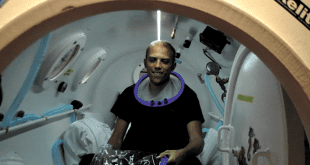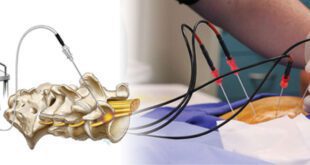By Negar Golesorkhi MD, FACS
The current guidelines recommend that women start breast cancer screenings at the age of 40. For multiple reasons, many women don’t begin getting their screenings until later or after they have symptoms, such as a lump or nipple discharge.
For African American women, it appears the age of 40 may not be young enough. Breast cancer has become the leading cause of cancer death for black women.
In African American women, we are seeing a rise in breast cancer, and commonly it’s a more aggressive form of cancer. It often starts in those younger than 40 years old. This aggressive cancer is called triple-negative breast cancer (TNBC) and can be challenging to treat. Black women are twice as likely to be diagnosed with TNBC than white women.
Triple-Negative Breast Cancer
TNBC is an aggressive form of breast cancer. This type of breast cancer is not driven by female hormones (estrogen and progesterone) and lacks a specific type of receptor called HER2. These characteristics make TNBC difficult to treat. Therefore, if not caught early, recurrence rate and treatment options are not as good as other types of breast cancer.
Diagnosis
All women should get a mammogram by the age of 40 (recommended guidelines), but for African American women, women with symptoms, or a family history of cancers, it’s essential to consider mammography sooner than age 40. Discuss your options with your healthcare provider.
If the mammogram shows any abnormal areas, you will need a biopsy to make a diagnosis. This is done using ultrasound, mammogram, or MRI. We seldom perform a surgery to establish a diagnosis, as surgery may not be needed if there is no abnormal diagnosis.
Talking to your healthcare provider about your family history and symptoms is of the utmost importance. The sooner you are diagnosed, the better the treatment options and outcome. If you have risk factors or are concerned about symptoms before age 40, your healthcare provider can request a breast cancer screening earlier.
Depending on your family history you may be eligible for genetic testing and a consultation with a genetic counselor. This discussion may provide powerful information regarding your personal risk of developing breast cancer.
In addition to race and family history, other risk factors associated with breast cancer are:
• Obesity
• History of radiation therapy to the chest at a young age
• Using hormone replacement therapy longer than 5 years
• Having dense breast tissue
• Excessive alcohol consumption
• Abnormal breast biopsy results
TNBC Treatment
A team approach with a surgeon, medical oncologist, radiation oncologist, plastic reconstructive surgeon is used for treatment of breast cancers. Surgery and chemotherapy are typically recommended. Depending on the stage of diagnosis and the surgical approach, radiation therapy may be recommended as well.
Socioeconomic factors
Socioeconomics plays a role in the prevalence of breast cancer in certain minority groups. In general, not going to the doctor for routine visits or having false beliefs about mammograms can lead to later diagnosis and require more aggressive treatment.
Myths about Mammograms
Some common myths about mammograms are that they will cause cancer due to radiation. This is not true. The radiation emitted is safe and at a very insignificant level.
Many women believe that if they need a biopsy, this will cause the cancer to spread. If you need a biopsy, this doesn’t mean you have breast cancer; 80% of biopsies are benign. The procedure is performed with a tiny needle that only aspirates a small portion of the tissue being tested, which is entirely safe.
Spreading the word
Spreading the word about breast cancer and early detection is essential. We need to help educate women on the importance of getting regular exams, doing self-exams, and having a mammogram at the right time. This can be done through women’s leadership groups, churches, community events, and other healthcare programs.
What you can do at home
Great websites are available to help answer questions, such as Breast360.org, ACS.org, Komen.org, and Nationalbreastcancer.org, to name a few.
You can also visit Bcrisktool.cancer.gov to assess your personal risk for breast cancer using the Gail Model. While this is a powerful tool, it should not replace routine visits, exams, or screenings.
If you don’t have insurance or can’t afford a mammogram, contact the county health department to find out about getting a free mammogram. BayCare also provides financial assistance for those unable to pay for mammograms.
If you have risk factors, are having symptoms, or are due for your breast cancer screening. Speak to your healthcare provider about scheduling a mammogram.
Dr. Negar Golesorkhi
Dr. Negar Golesorkhi is a board-certified breast surgical oncologist with BayCare Medical Group. She completed her undergraduate degree in biology, followed by a Master of Science in molecular biology from George Mason University in Fairfax, Virginia. She earned an additional graduate degree in anatomy, followed by her Doctor of Medicine from Medical College of Virginia in Richmond, Virginia. Dr. Golesorkhi received her general surgery training along with dedicated research in tissue engineering/vascular surgery from Thomas Jefferson University Hospital in Philadelphia, Pennsylvania.
Dr. Golesorkhi completed her Susan G. Komen/Society of Surgical Oncology fellowship in breast surgical oncology from Allegheny General Hospital in Pittsburgh, Pennsylvania. Dr. Golesorkhi has published numerous articles for peer-reviewed publications, such as the Annals of Surgical Oncology and the American Journal of Physiology. Since 2009, she has dedicated her career to individualized treatment of benign and malignant breast diseases. Her passion is to raise awareness in prevention and treatment of breast related disease in marginalized communities. Dr. Golesorkhi is a member of the American Society of Breast Surgeons, the American College of Surgeons, and the Society of Surgical Oncology and is a member of medical staff at Morton Plant Hospital. She is fluent in English and Farsi.
The Comprehensive Breast Care Center – Trinity
2102 Trinity Oaks Boulevard, Suite 204
New Port Richey, FL, 34655
727-462-2131
 Central Florida Health and Wellness Magazine Health and Wellness Articles of the Villages
Central Florida Health and Wellness Magazine Health and Wellness Articles of the Villages



